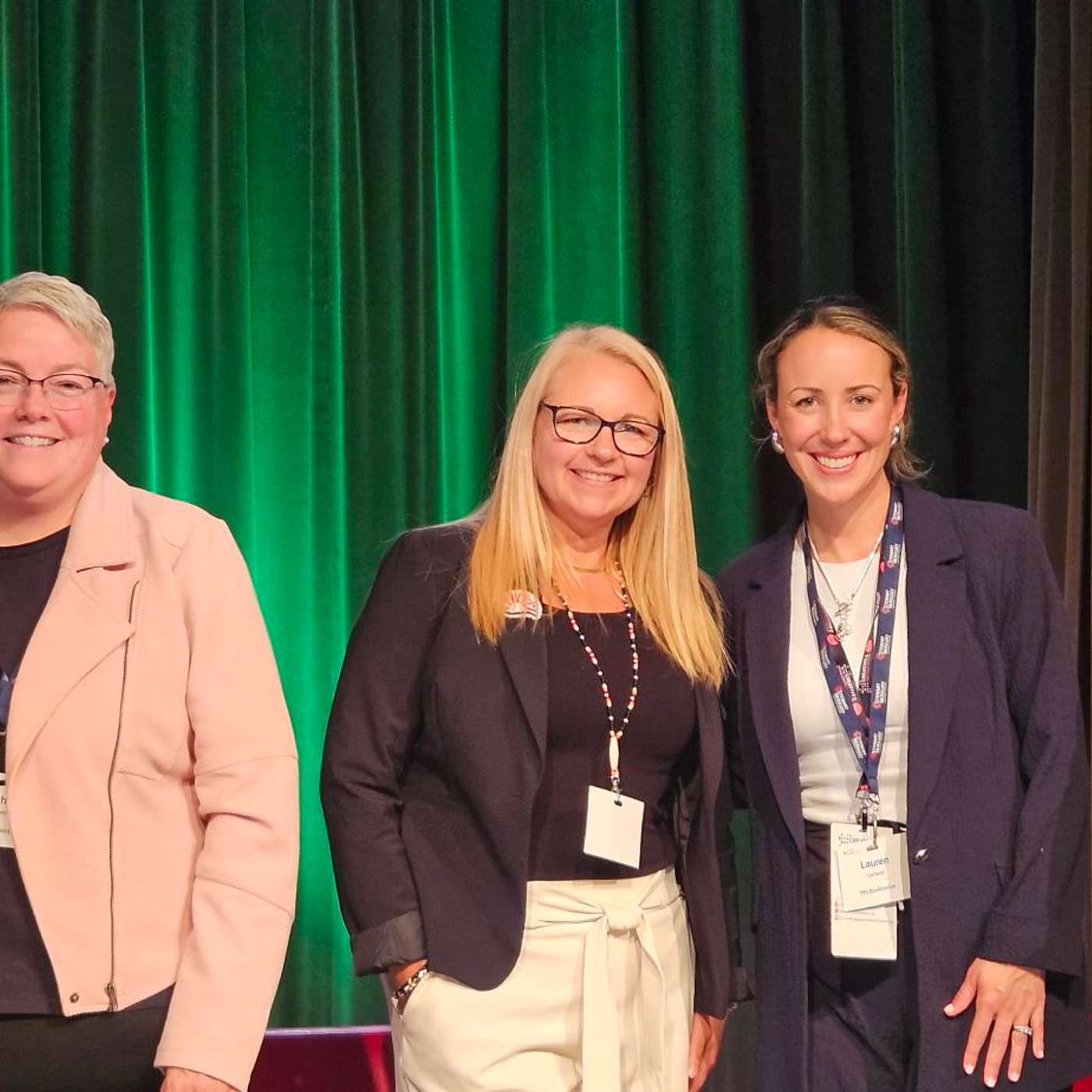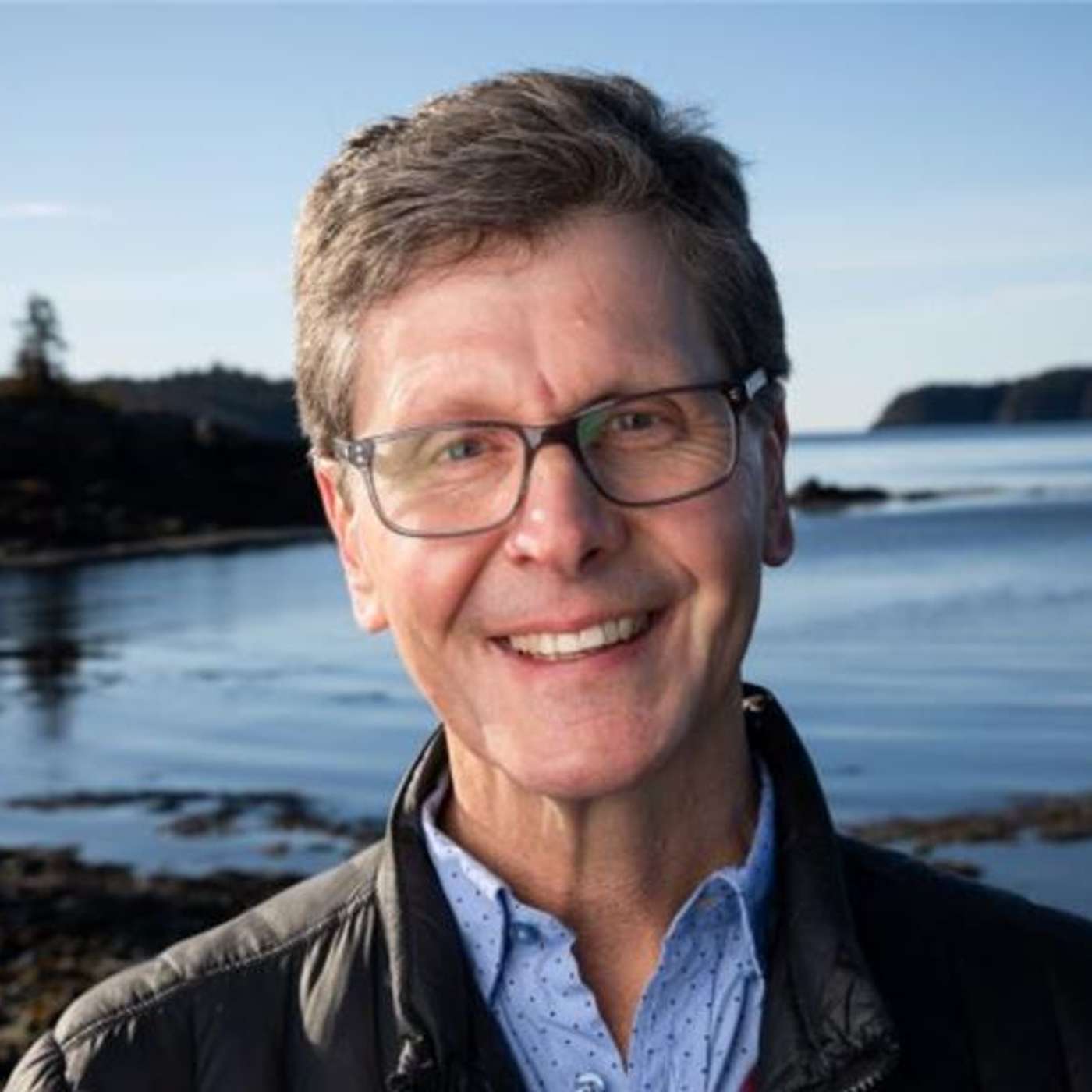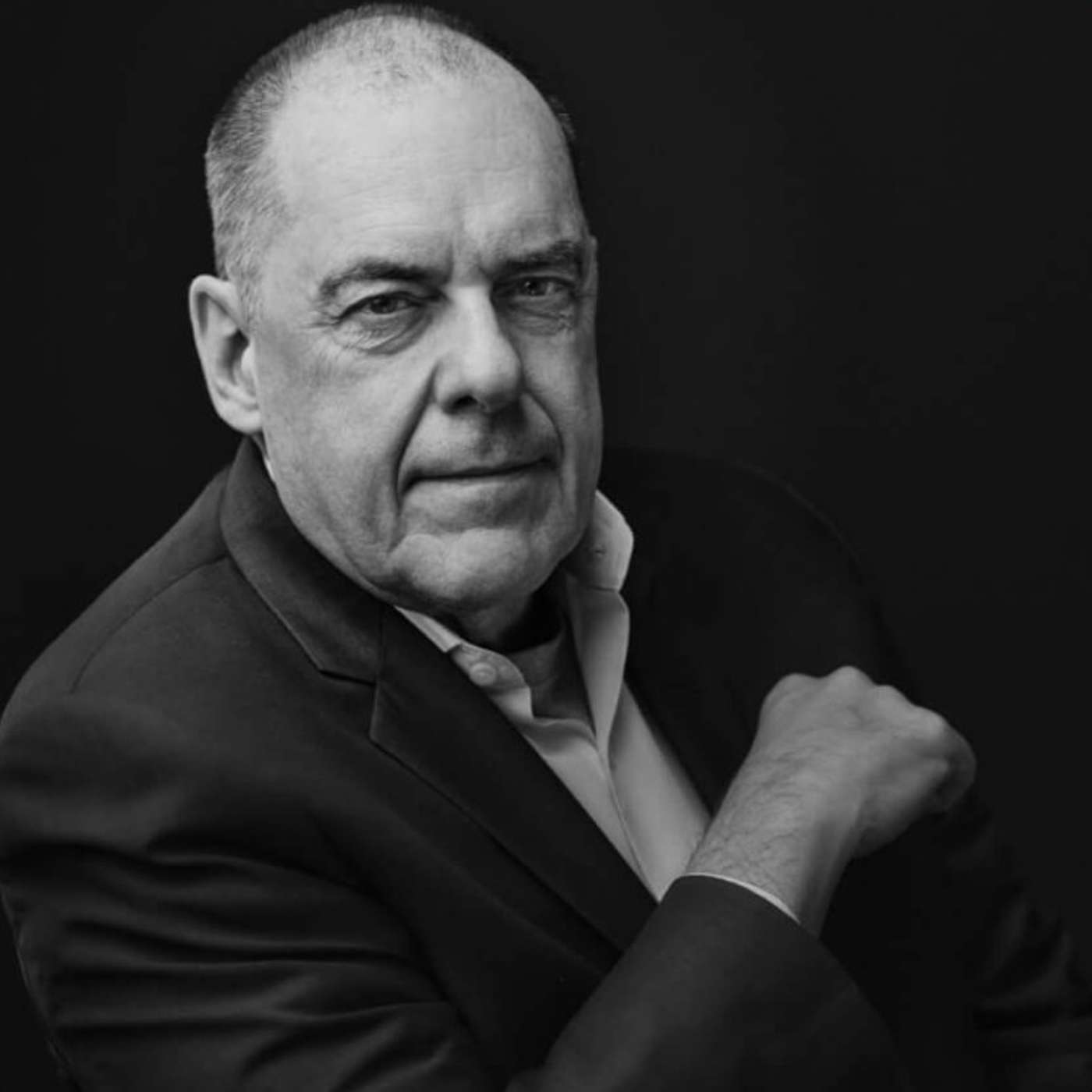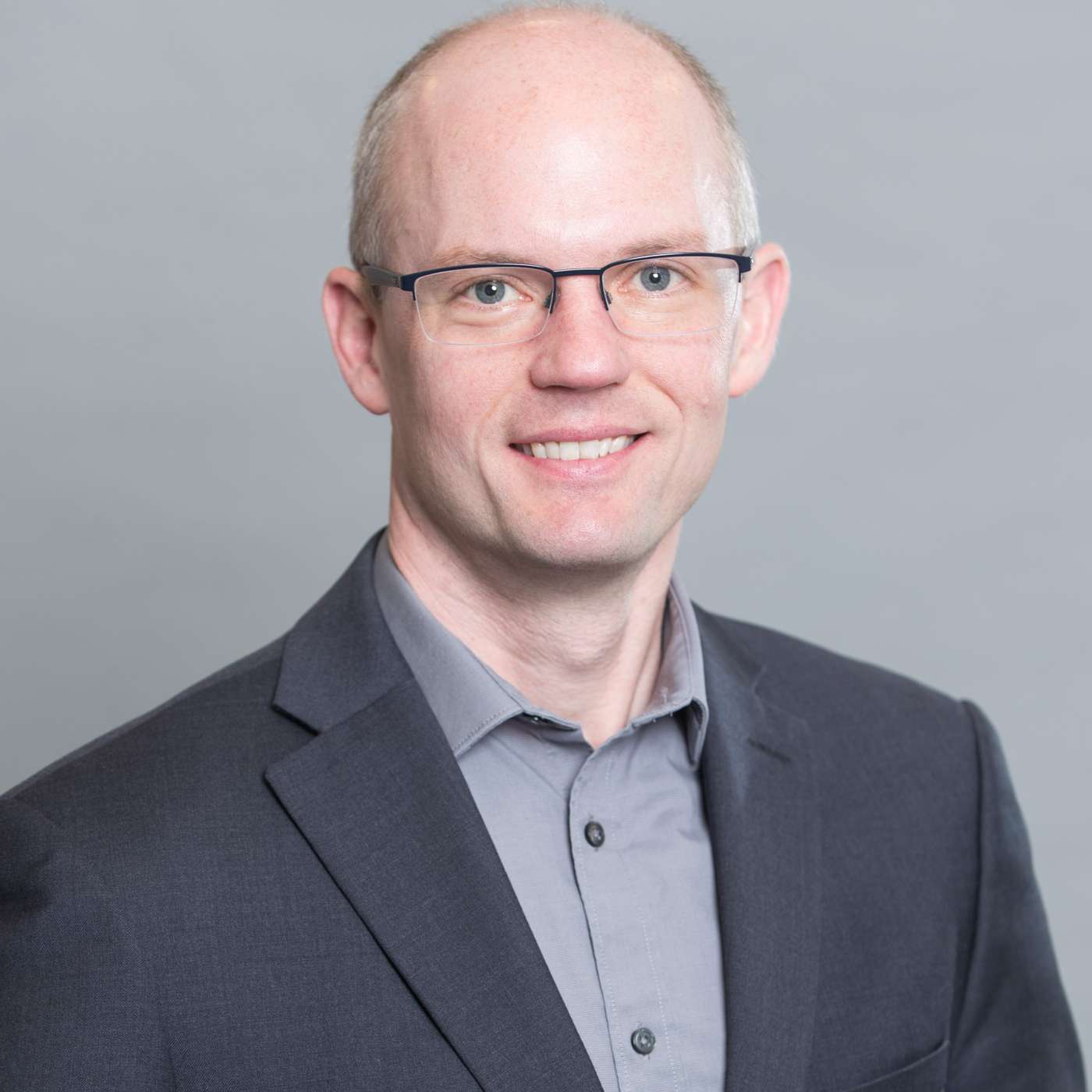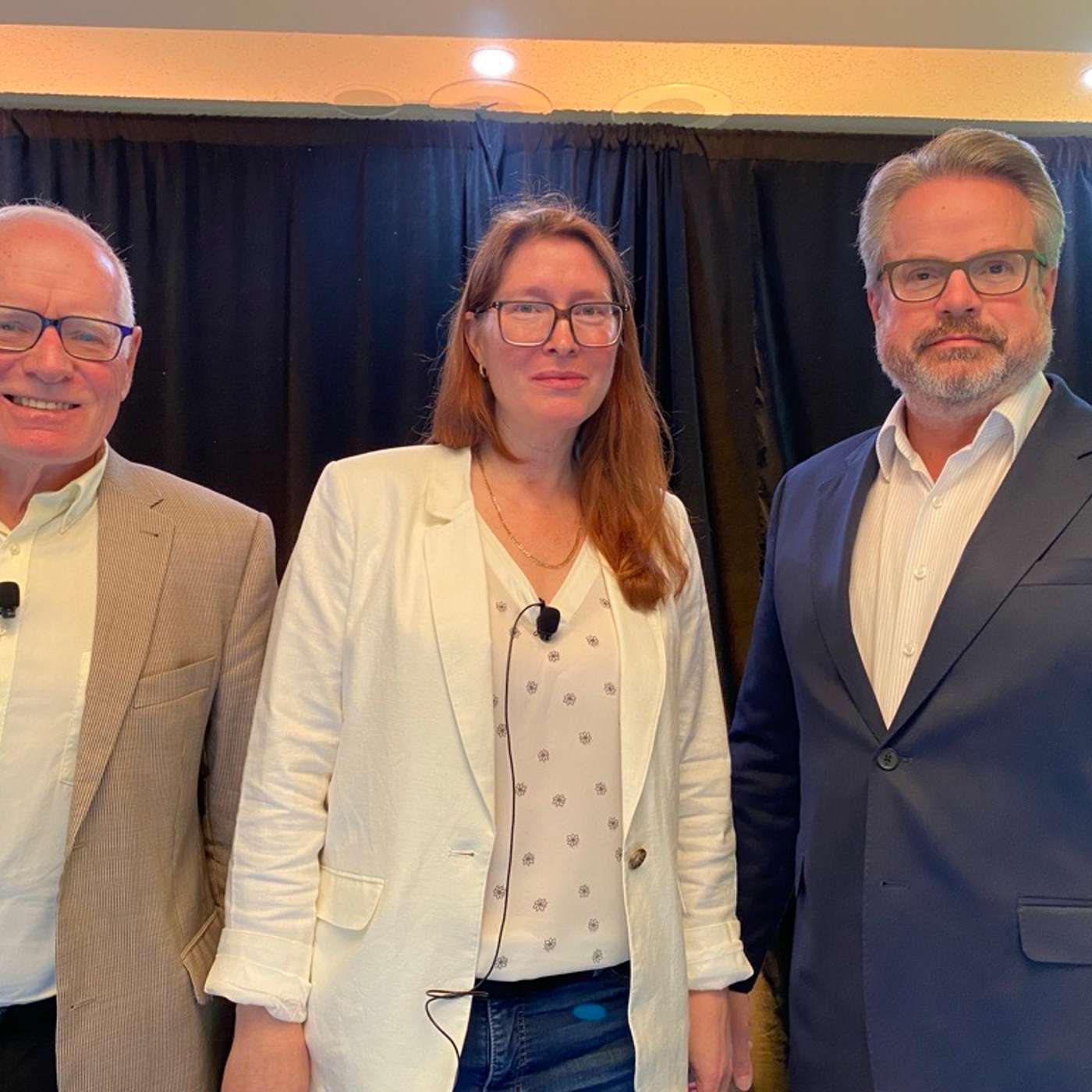Discover Insights with Don Mills and David Campbell- An Acadia Broadcasting Podcast
Insights with Don Mills and David Campbell- An Acadia Broadcasting Podcast

Insights with Don Mills and David Campbell- An Acadia Broadcasting Podcast
Author: Don Mills & David Campbell
Subscribed: 32Played: 1,115Subscribe
Share
© 2023 Acadia Broadcasting Corporation
Description
This podcast combines the experiences of an economist, David Campbell and a social scientist, Don Mills, to explore the challenges and opportunities facing Atlantic Canada, to promote data-driven decision making among policymakers and to encourage a wider dialogue and debate leading to greater prosperity for the region. Expect to hear interviews with the top influencers, business leaders and decision-makers across Atlantic Canada to inform, educate and expand the conversations on the key issues facing the region.
236 Episodes
Reverse
In this episode, Don Mills moderates the final plenary panel at the ACG Atlantic Network Conference, a premier event focused on investment opportunities in Atlantic Canada. With over 200 investors from across Atlantic Canada, Central Canada, and the U.S. in attendance, this dynamic conversation explores the region’s economic transformation and future growth.Featuring an all-star panel of industry leaders—Cathy Bennett (Sandpiper Ventures), Lauren Ledwell (PEI BioAlliance), Greg Wanger (Oberland Agriscience), and Michelle Robichaud (Atlantica Energy Centre)—the discussion dives into key themes from the book Towards Prosperity: The Transformation of Atlantic Canada's Economy, co-authored by Don Mills and David Campbell.Topics include:Energy development and innovationEconomic clusters and regional collaborationCapital attraction and investment strategyBuilding a prosperous future for Atlantic CanadaWhether you're an investor, entrepreneur, policymaker, or economic development professional, this episode offers valuable insights into the evolving landscape of Atlantic Canada's economy.
This week on Our Insights Podcast, we sit down with Lori Clark, the first-ever female CEO of NB Power, to explore the future of energy in New Brunswick. Appointed in July 2022, Clark brings nearly 30 years of experience within the utility to a leadership role marked by major infrastructure and sustainability challenges.🔊 Listen now to gain insights into:The future of Point Lepreau Nuclear Generating Station, whose license expires in 2032, and the critical decision to refurbish or replace the plant that supplies 700 MW to the provincial grid.The urgent repair needs of the Mactaquac Dam, which provides 20% of New Brunswick’s renewable energy and faces a $7.6–$9 billion overhaul due to premature cement issues.Plans to transition the Belledune coal-fired plant to biomass by 2030, with a projected cost of $100 million.The development of a new natural gas generation facility by the private sector to support renewable energy reliability.NB Power’s strategy to balance affordability, sustainability, and reliability for ratepayers amid these major shifts.🎙️ Clark offers a candid and comprehensive overview of NB Power’s roadmap, the challenges ahead, and the leadership required to navigate a rapidly evolving energy landscape.
This special Insights podcast is the last of a three-part series of interviews with exciting entrepreneurs building bioeconomy companies in Atlantic Canada. You will find the first two interviews with Vyterra Renewables Inc. and Oberland Agriscience in the Insights podcast feed. This series is sponsored by Greenspring Bioinnovation Hub and Bioindustrial Innovation Canada. This week we talk with Mark Masotti and his exciting new company, alterBiota. Mark ‘fell in love’ with anaerobic digestion and has a new technology that uses wood byproducts to create a product that strengthens concrete and at the same time reduces its carbon footprint. The Verschuren Centre in Cape Breton lured Masotti from Toronto and he raves about the support he received after arriving. He believes Nova Scotia is an excellent place to build a successful bioeconomy company and he tells us all the reasons why in this podcast.
On this week's Insights podcast, David speaks with Matt Symes about the potential of artificial intelligence (A.I.) in our region. Matt is a leading strategic thinker in our region, helping firms and organizations, and has integrated A.I. into his consulting practice. We discuss practical ways to use A.I. in health care, education, business services and even construction. We also discuss how government policy could support wider adoption of this transformative new technology.
This episode of the Insights Podcast features an interesting conversation with Mike Cassidy, the CEO of the Cassidy Group which owns Coach Atlantic, Maritime Bus and T3 Transit. The Cassidy Group is the largest family-owned motorcoach company in Canada and has more than 250 pieces of equipment in its fleet of buses and more than 800 employees. Coach Atlantic is a dominant player in the chartered bus sector in the region, while Maritime Bus provides regularly scheduled bus service on 14 routes to 40 communities across the three Maritime Provinces. If you noticed any of Coach Atlantic or Maritime Buses, the fleet is virtually new, with most buses in their fleet being less than five years old. This is part of the company's strategies to manage capital efficiently. To that end, in 2024, Cassidy committed to buying 100 buses from Prevost, the Quebec based bus manufacturer. The cost of each bus today is $800,000. Cassidy also serves the cruise ship business in both Charlottetown and Halifax, has interests in agriculture through Van Kampen Nurseries and real estate development in Charlottetown. His entrepreneurial story is very interesting as a Halifax born, Saint Mary's graduate who began his career as a chartered accountant in PEI. Enjoy!
This week on the Insights podcast, Don and David spoke with Dr. Wendy Rodgers, the President and Vice-Chancellor at University of Prince Edward Island. Dr. Rodgers discusses the important role the university plays in the Island economy as well as the direction of the new strategic plan. She talks about the federal changes to international student attraction and how that damaged Canada's brand as a destination for international education. UPEI has a new Faculty of Medicine and other interesting initiatives underway. To get a good primer on UPEI and its future listen to this week's Insights episode.
Our guest on this episode of the Insights Podcast is Mike Whittaker, until recently the CEO and Co-Owner of TruCorp. TruCorp is the Truro based holding company that was owned by Mike and his partner Bill Hay until he sold his shares. Trucorp had two main holdings Bonte Foods, the federally certified meat manufacturer in Dieppe and Grinner's Food Systems, which owns Greco Pizza, as well as Captain Submarine and Frozu Frozen Yogurt. Mike has an interesting personal story, joining Trucorp as a marketing specialist, before over time becoming a 33 percent equity owner of the company. Under his leadership, Greco Pizza grew from less than ten outlets to 120 outlets around Atlantic Canada and became the number one pizza brand in the region with annual sales of over $50 million and more than a thousand employees. He introduced Grecoville and the thirty minute delivery promise and the memorable marketing tagline "Greco 310-30-30" that is still being used thirty years after its introduction. At the same time, Mike helped expand Bonte Foods through the acquisition of the Chris Brothers brand of deli meats. TruCorp sold its interest in Bonte in 2020 and Mike sold his equity in TruCorp a couple of years ago. It is a fascinating story of business success that is mostly unknown. Enjoy!
On this week's Insights Podcast, veteran oil & gas executive, Jim Livingstone, the CEO of RC Energy makes a compelling case for the development of the onshore natural gas in the three Maritime Provinces, which combined have estimated reserves of more than 200 TCF (Trillion Cubic Feet), the equivalent of the natural gas in the Permian Basin in West Texas, considered one of the most prolific gas producing regions in the US. One TCF is enough natural gas to heat all the houses in Canada that currently use natural gas for two years. It could also be used to develop an LNG (Liquefied Natural Gas) sector in our region, replacing the natural gas currently being imported. Livingstone has developed a drilling methodology that does not use hydrofracking to drill for shale gas. His method is based on using air to extract the gas and eliminates many of the concerns associated with hydrofracking. He insists that the type of shale basin in our region, derived from ancient lakes rather than most shale basins elsewhere, which are derived from ancient oceans, results in a much more densely compacted clay content, making it less suitable for hydrofracking. He claims it is one of the reasons previous drilling programs have failed in New Brunswick. This conversation is fascinating and could potentially lead to unlocking over $400 billion worth of natural gas in the Maritimes, thereby removing opposition to natural gas development in our region.
On this week's Insights podcast, Don and David speak with Mark Gaddas, owner and President of Woodstock, New Brunswick-based Ironwood Manufactured Homes Inc. The company recently announced a large-scale expansion to help it meet the demand for housing in New Brunswick, Maine and beyond. Mark tells us his new facility will be the largest manufacturing plant in Woodstock. We discuss the role of manufactured housing in addressing housing demand, the challenges of recruiting staff in small towns, and the regulatory barriers impacting the sector. As a share of GDP, New Brunswick has the largest manufactured housing sector among the 10 provinces in Canada. The Ironwood expansion and other developments point to this being a potential growth sector for the province in the years ahead.
On this week’s Insights podcast, Don and David speak with Tom Taylor, Executive Director of the Atlantic Canada Fish Farmers Association, about the state of finfish aquaculture in the region. The industry is a significant engine for mostly rural areas in the region, supporting over 8,000 jobs and boosting gross domestic product (GDP) by over $900 million. Over 1,300 suppliers generate $600-$700 million worth of business each year from the aquaculture sector. Tom tells us about the history of the industry, dating back to government-led research in the 1970s, to the exciting innovation happening right now in our region. Despite being one of the best ways to produce sustainable and healthy meat protein, the finfish aquaculture is having to fend off a considerable amount of misinformation. Tom discusses this risk and the efforts his association is taking to counter misleading, inaccurate and outright falsehoods about the industry.
This week's Insights podcast addresses the challenge of growing crime across Atlantic Canada. This is a concern among business owners and the general public in all four provinces. To talk about this issue, Don and David are joined by Mike Hammoud, Vice-President, Atlantic Canada at the Convenience Industry Council of Canada and Danny Fournier, Senior Manager with Rothmans, Benson and Hedges Canada’s (RBH) department of Illicit Trade Prevention (ITP). Mike and Danny discuss trends that could be driving the increase in crime, such as the cost of living, the mental health crisis, expanded drug use and the growing presence of organized crime in our region. More importantly, the conversation focuses on solutions. We need expanded public education, a stronger focus on prevention, better use of technology, and mobilization of communities through groups such as Crimestoppers and Neighbourhood Watch. Importantly, our police services need the resources to focus upstream before the 911 call is ever made. Better prevention and deterrents should lead to a decrease in crime across our region. This is an important conversation.
On today's Insights podcast, Don and David talk with well-known author and Globe and Mail journalist John Ibbitson. The wide-ranging discussion covers his two recent books, as well as his thoughts on everything from demographic trends and interprovincial trade. In The Duel: Diefenbaker, Pearson and the Making of Modern Canada, he makes a compelling case that Diefenbaker should rank higher on the list of Canadian Prime Ministers. In A Nation's Paper: The Globe and Mail in the Life of Canada, Ibbitson curates 30 essays from Globe writers on the role the newspaper has played at important times in Canada’s history. He has a new book coming out in the Fall with Darrell Bricker called "Breaking Point: The New Big Shifts Putting Canada at Risk." Ibbitson is a fairly rare breed among national writers and commentators in that he has deep knowledge of the Atlantic Canada population and economy. We discuss immigration, Employment Insurance, trade and other topics with a focus on Atlantic Canada.
Monette Pasher, President of the Canadian Airports Council, joins Don and David on the Insights podcast this week to talk about the council’s new report called “Keeping Canada Connected: The Challenge of Regional Air Service and Federal Policy”. The transfer of airport management in Canada from the federal government to local authorities in the 1990s is considered by many to be an excellent example of good public policy. However, over the past decade or so, there has been an increasing erosion of services and connectivity between smaller airports and their surrounding communities. The new CAC report finds that flight frequency at regional airports has decreased by 36% since 2014 – a trend exacerbated by the pandemic. Pasher believes that more of the $500 million in rent that airports pay the federal government every year should be allocated to an “Essential Air Service program”, similar to a program in the United States. We talk about a range of issues, from the rationale behind the transfer 30 years ago to the role of provincial and municipal governments in ensuring regional air connectivity.
We spent the month of June on a tour around the region to promote our newly published book, "Toward Prosperity: The Transformation of Atlantic Canada's Economy." The reception has been very gratifying, and the early reviews have been very favourable. Among those stops was the Chamber of Commerce for Greater Moncton, where their high-energy CEO, Kim Wilson, moderated a lively discussion about the book with us, covering the main themes of the book and why we are so bullish on the future of Atlantic Canada. We wanted to share that conversation with you. You can purchase the book at local bookstores, Indigo, Amazon and even Costco. Enjoy!
This week's Insights Podcast is the second of three in our special series on the bioeconomy sponsored by the Greenspring Bioinnovation Lab and BioIndustrial Innovation Canada and features a very interesting conversation with Greg Wanger, the Founder & CEO of Oberland Agriscience. Oberland has a brand new 100,000 square foot manufacturing facility in Ragged Lake that is nearing completion that uses Black Soldier flies to produce fertilizer for the agricultural sector and feed for the pet food market and the aquaculture and farming sectors. The plant when fully operational will divert 100 tons of organic waste from landfills on a daily basis to feed the Black Soldier flies to produce 20 tons of fertilizer and 20 tons of feed protein per day. Prior to forming Oberland, Wanger worked with the Jet Propulsion Lab in California and helped develop equipment for the Mars Rover. The company is proud to introduce the lowest carbon-footprint protein ingredient to the market and expects to be totally off the grid and using only renewable power in the near future. Wanger is just getting going and plans more manufacturing facilities in the future.
On this week’s Insights podcast, Don and David speak with Dr. Trevor Tombe, Professor in the University of Calgary’s Department of Economics and Director of Fiscal and Economic Policy at the School of Public Policy. Dr. Tombe has published a number of papers related to interprovincial trade barriers including a recent one for the Public Policy Forum specifically covering the benefits to Atlantic Canada from making it easier to trade across provincial borders. We discuss a variety of barriers to provincial trade including rules and regulations, and we go deeper with a lively discussion of issues such as government subsidies to industry, provincial tax rate differentials, infrastructure investments and other government-related benefits that may provide advantages to industries in one province but not another. This one got a little wonky but we are sure you will enjoy the conversation.
This episode of the Insights Podcast was live recorded at the recent Biocon Conference held in Saint John, New Brunswick. This was the thirteenth annual conference for this sector. The podcast features a conversation with David and Don that was moderated by Meaghan Seagrave, the Executive Director of Bioindustrial Innovation Canada, an organization that provides critical strategic investment, advice and services to business developers of clean, green and sustainable technologies. There are many new companies in the bioeconomy that are leading the way, including Vyterra Renewals which was the focus of a recent podcast and Oberland Agriscience which will be a future podcast. Vyterra turns wood into fuel and Oberland turns insects into feed and fertilizer. This podcast focuses on the opportunities and challenges facing the bioeconomy sector and what needs to be done to accelerate its growth.
Dennis Campbell, the Founder of Ambassatours, first became interested in the tour business at the age of seven years ago when he accompanied one of his sister's guided tours and started his company in 1987 while still in high school. At its peak, the company had annual revenues of $30 million and employed nearly eight hundred people,100 buses and served 19-21 ports. Last year the company had 450,000 customers using the company's various land, water and amphibious tours. In this podcast, Dennis takes us on his personal business journey as he built his company, including some of the early challenges financing its growth, eventually selling off parts of his business as he begins winding down his long successful career. From the Harbour Hopper to double decker buses, the Silva, Harbour Queen, Theodore Tugboat, and the Magic Winery Tours, there is a very good chance listeners will have been on one of Dennis's tours. His role in the development of the hospitality sector within the region cannot be overstated. He is the consummate storyteller as you will see from this conversation.
This week's Insights Podcast is the first in our sponsored BioEconomy Series over the next three months in partnership with the Greenspring BioInnovation Hub and Bioindustrial Innovation Canada and features a conversation with JC Amado, Chief Development Officer with Vyterra Renewals and Cassie Turple, member of the third generation of family owners of Ledwidge Lumber about their interesting collaboration that will see the construction of a 40 million litre plant on Ledwidge's property using Vyterra's proprietary Rapid Thermal Processing (RTP) technology and the wood by products from Ledwidge's operations to convert wood into low carbon fuel. The plant will cost $200 million to build and is expected to be operational by the end of 2027 and will use the feedstock of 2-3 sawmills in the province, which lost a significant customer for their products with the closure of Northern Pulp. If successful, Vyterra's has hopes of building two other similar plants in the province.
Everyone who owns a vehicle has used a parking meter, whether an old-fashioned coin operated meter or the new electronic smart meters. It is highly unlikely that you have ever heard of MacKay Meters of New Glasgow, Nova Scotia, but there is a good chance that you have used one of their meters. MacKay is the only company manufacturing parking meters in Canada and has been in business for more than sixty years. Parking meters have become increasingly sophisticated, and MacKay Meters has been among the most innovative companies in this space. The company was the first to introduce the use of credit card payment and has the best coin validation system in the industry. The modular design of their smart meters makes it easier to keep the meters current. The company has developed software support to manage and maintain their meters, including the management of time-of-day parking rates around special events. Indeed, there are some years where revenue from their hosted subscription services exceeds their hardware sales. MacKay just completed the world's largest parking project ever undertaken when it installed 13,000 of its smart meters and 3,000 of its pay stations in San Francisco. Since its inception, the company has installed over a million meters.Our podcast with third generation CEO James MacKay provided an excellent overview of the secret to the company's success over such a long period of time and another reminder of the opportunities that exist for manufacturers in Atlantic Canada.


